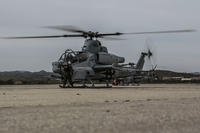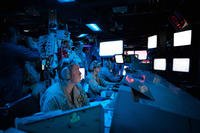 Back in November, a good-sized chunk of the press and blogosphere got all a-twitter about the American use of "chemical weapons" -- never mind that the munitions the Army used were anything but.
Back in November, a good-sized chunk of the press and blogosphere got all a-twitter about the American use of "chemical weapons" -- never mind that the munitions the Army used were anything but.
Now, we've got ourselves a new variation on the argument. This one comes from Wayne Madsen, who blogged his belief that Israeli military forces are using a dual-purpose fuel-air explosive/chemical munition in Lebanon (see his entry on July 23). Seems he's sold on the fact that one man can pick up the munition, clearly demonstrating that it is filled with a gas and not a liquid (plus some gruesome corpse photos).
The claim was all too easy to shoot down on general chem warfare principles. But it has been joined by other news sources (see here, here, and here). Most of the reports mistakenly believe that these are phosphorus munitions, similar to the stories of U.S. forces' use in Fallujah, mostly because of the blackened nature of the casualties' skin. Sadly, these reports are mistaken; the munitions aren't even phosphorus-filled.
The Defense Update has the story on this military system. It is indeed a minefield breaching system, called "Carpet," currently in use by the Israeli army and will be fielded with the French army next year. Not much imagination as to the name and its function: the armored vehicle that is the weapon platform can fire up to 20 rockets in a rapid squence for minefield breaching. The force of the FAE blast clears nearly all mines, regardless of terrain, foliage or man-made obstacles.
Pre-programmed for automatic, semi-automatic or manual operation, Carpet is operated remotely from inside the vehicles compartment, under cover from enemy fire. The system can also be reloaded rapidly in the forward area. Unlike the Vipers, firing line charges across the minefields, Carpet rockets contain only liquid fuel which is flammable but not explosive in regular operating conditions. Therefore, if Carpet rockets are hit in their canisters, they do not cause any danger to the system, vehicle or nearby troops.
Fully loaded, the Carpet launcher weighs only 3.5 tons. It can carry up to 20 x 265 mm rockets, each weighing 46 kg. Fully functional training rockets can also be fired with the system for training exercises, safely simulating the entire operation (without fuel-air explosion). The system can be towed, mounted on the rear of the armored fighting vehicle (as shown on the IDF Puma AFV at EuroSatory 2002) or installed inside an APC. The IDF used the Carpet during the war in Lebanon, neutralizing and clearing Hezbollah strongholds near the Israeli- Lebanese border. (See video here)
Only one newspaper I found - South Africa's Star - correctly identified the one potential violation of the international law banning the use of incendiaries against noncombatants, rather than the more popular accusation that Israel was using "chemical weapons" in violation of the Chemical Weapons Convention (to which Israel isn't a party, anyway). Comment from the Israeli army? "We use only weapons and ammunition which will best hit our targets and cause least collateral damage," said army spokesman Captain Jacob Dallal. Yep. FAEs are very powerful conventional weapons, but they aren't toxic chemical weapons.
-- Jason Sigger, Armchair Generalist








